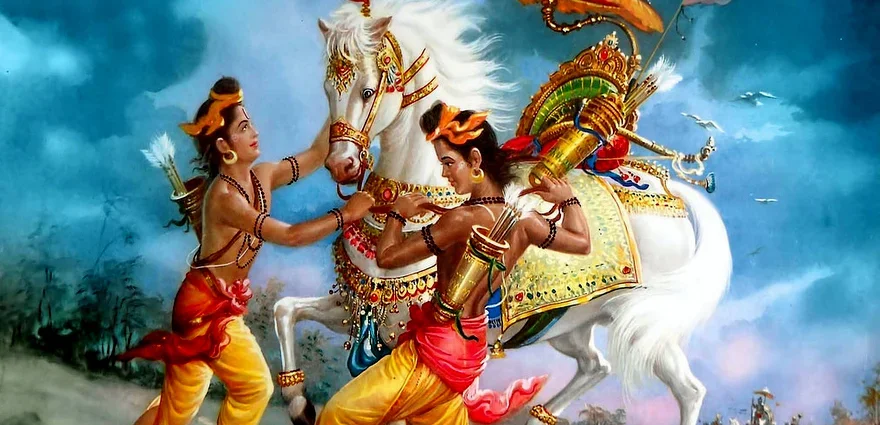Padmanabhan Janakiraman
Member
THE ASHWAMEDHA—
A great mischief has been caused by the misinterpretation of this Yajna. To understand the true significance of this Yajna we must understand what Ashwa is. As it is usually with the Vedic words, this word has a great number of meanings.
Aurovindo Ghosh has emphasized the fact that the Vedic roots have various meanings.
In supporting his position he has referred to the words ‘Chandra’ and ’Gau’. Ashwa according to the Shatapatha Brahmana (XIII.3.3) means God.
Taking hold of this meaning we can without the least hesitation say that Ashwamedha has spiritual significance.
Ashwa means horse as well as all such physical forces which can enable us to move quickly. In another place we read Ashwa, the Agni (heat) carries, like the animals of conveyance, the learned who recognize its distance-carrying properties (Rig Veda 1.27-1).
This idea is also supported by Shatapatha (III.3.29-30). On this principle Pt. Gurudatta translates the hymn of the Rig Veda. His translation of the opening verse is as under:
“We will describe the power generating virtues of the energetic horses endowed with brilliant properties or the virtues of the vigorous force of heat which learned or scientific men can evoke to work for purposes of appliances (not sacrifice). Let not philanthropists, noble men, judges, learned men, rulers, wise men and practical mechanics ever disregard these properties.”
Ashwamedha also refers to polity. Political wisdom should so pervade the notion as Ashwa (God) pervades the universe. This is supported by the Shatapatha in the following words: “A king administers justice to his subjects, governs them properly, encourages learning among them, and performs homa by throwing the samagri (odoriferous materials), clarified butter in fire. This is Ashwamedha.”
On this principle the great Swami Dayanand Saraswati translates the 23rd chapter of the Yajur Veda. The learned writer strengthens his position by quoting [Rig Veda] i.21, Shatapatha XIII.2.12.14-17, XIII.1.3.2, 2.6.15-17 and also XIII.2.2.4-5 and several other authorities.
The greatest argument in favor of this translation is that in it there is nothing immoral, obscene and disgusting as is to be seen in the sacrificial translation. The Mimansis—our great authority on interpretation—say that we must always take for granted that the teaching of the Rishis are always reasonable and rational.
indiadivine.
This Post is for sharing knowledge only, no intention to violate any copyrights.

